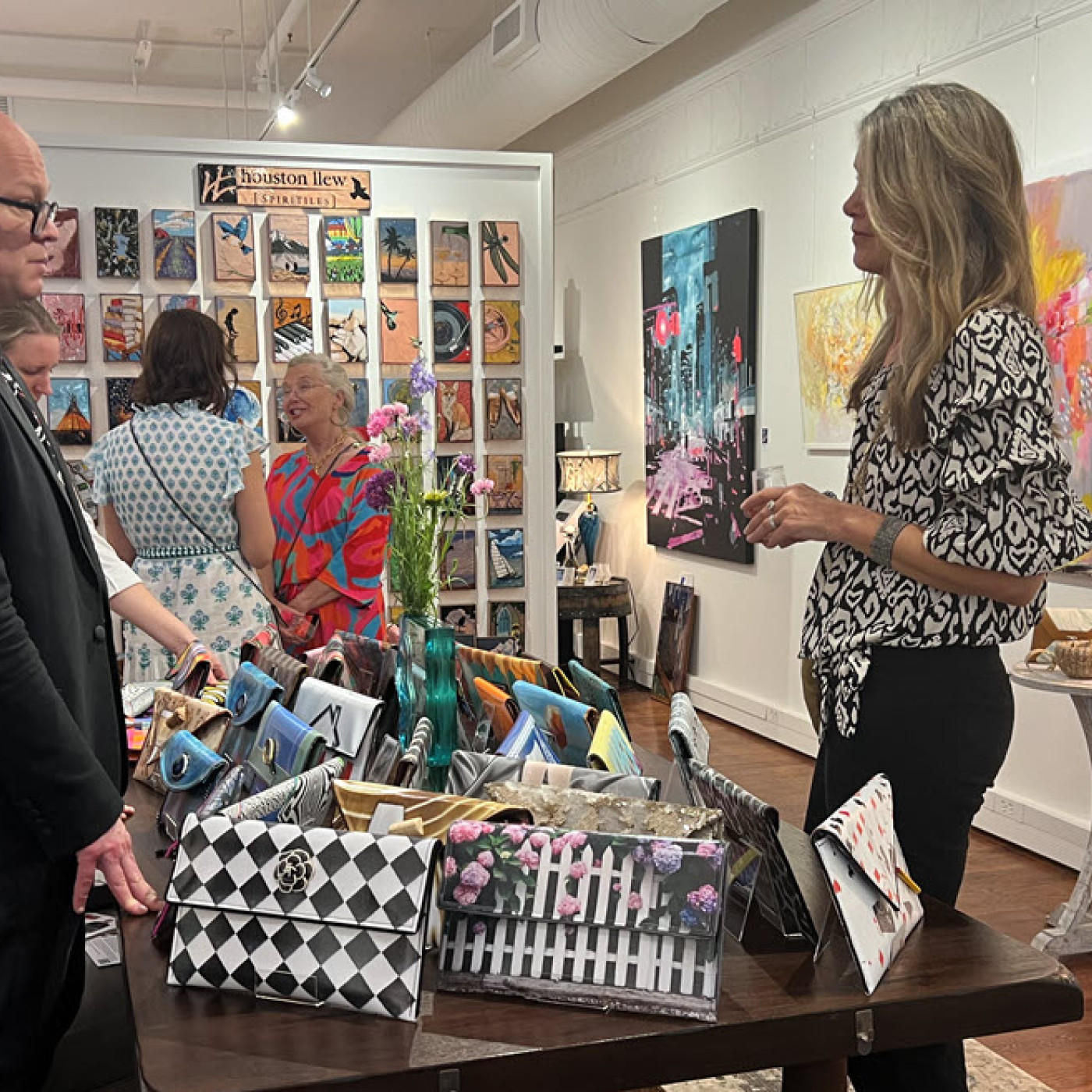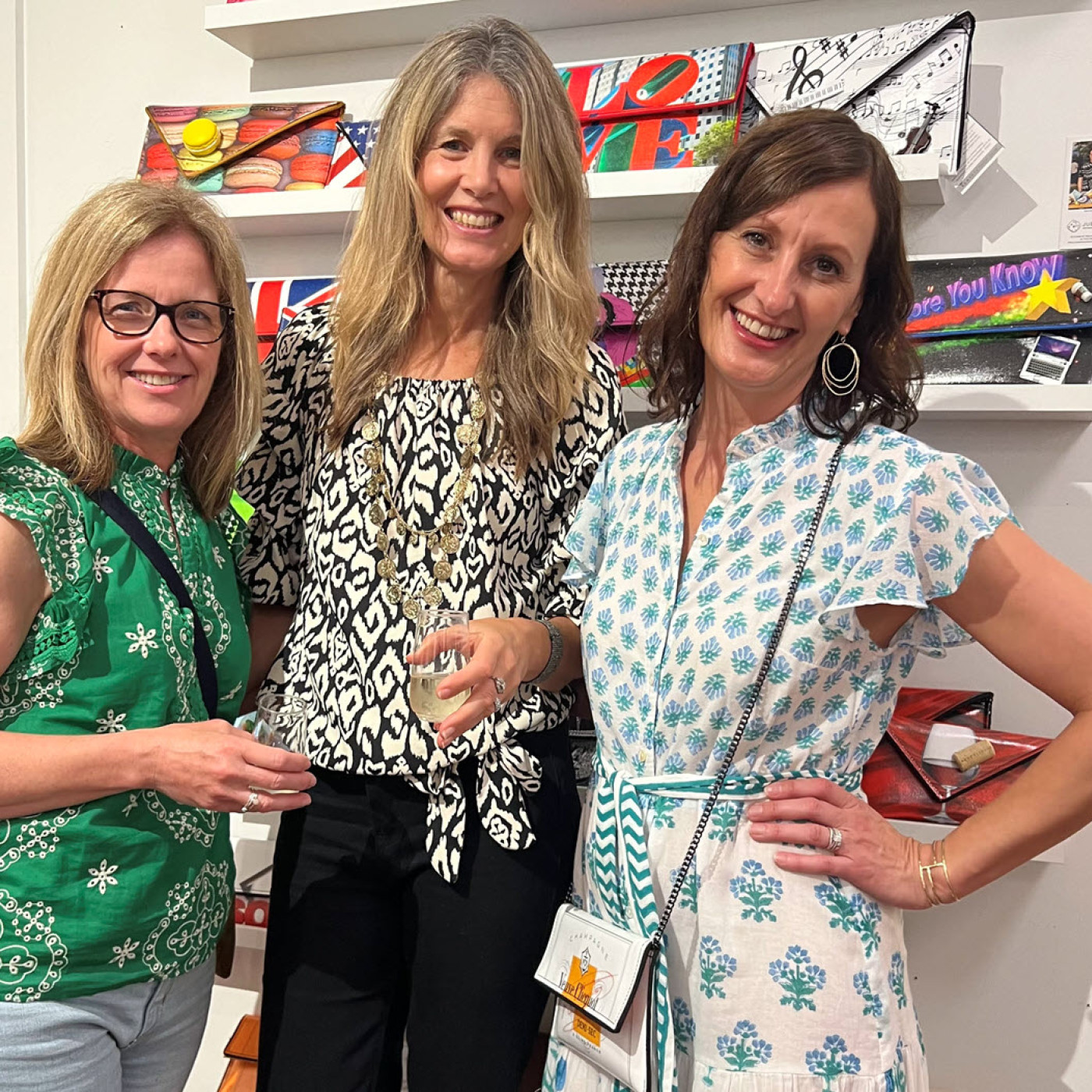Forging Great Retailer Relationships

As you begin to build a roster of retailers who are purchasing your products, it is also time to consider forging lasting bonds with those customers.
While it is natural for some relationships to falter, it is important to retain as many shops as possible. Let’s look at some things you can do to strengthen those bonds.
The first goes without saying: Do what the retailer requested when ordering from you. Send them exactly what they ordered and send it to arrive on time.
Enclose a detailed packing slip which makes it easy for them to check in the items. Make sure you enclose a handwritten thank you note. It can be just a few words on the back of your business postcard that show your personal appreciation.
In about 30 days you might want to touch base with the buyer and find out how your product is selling. Send a brief email and say you want to know how your product is being received and if there is anything the retailer needs from you.
Do not be concerned if you do not receive a response. The buyer may just be busy. However, if you do get to chat for a few minutes, use the retailer’s first name and make the call personal.
Do keep in touch with the store periodically, especially if you have new products or a special offering on an online platform like Faire or IndieMe. You can add a brief sentence or two about news from your studio, too. Make this email concise and fun, with a photo or two and a call to action, and plan to send it every few months.
If you live near any of the retailers who stock your products, take the time to visit them. This is true also if you are traveling near any of your accounts. Drop an email and tell them you are excited to see them and their shop.
As a former retailer, I can remember every maker who took the time to visit our gallery, and in all cases the visit was appreciated. Also, we continued to carry that brand for many years!
Communication is an important tool in building retailer relationships. Many artists will take a quick poll of their best customers to ascertain which trade shows they are likely to attend or what wholesale platform they prefer. If the general business climate seems cloudy, it might be a good time to touch base with your retailers just to see how they are faring.
If along the way, something does go wrong, own up immediately. If a shipment is going to be delayed, call the buyer right away and give an honest explanation and the expected timetable. Most people understand that things happen, but what makes it irritating is when left in the dark.
One time in my gallery, I had made a large order of dark green and wine-red pottery for a Christmas display. As we went to set up for Christmas, I realized it had never arrived. When I called the vendor, I was shocked when he just flatly said his kiln was broken. My first thought was, “And you didn’t think to tell me?” You need to pay attention to your customers.
The small, extra efforts you make can truly foster a sense of collaboration with the store owner. Giving them something extra can pay big dividends.
I knew a potter who added a small piece to every order without charge. He enclosed a note saying the additional small vase was included to offset the cost of shipping. As you know, shipping pottery is always pricey, and this gave his customer a piece she could sell to compensate.
If you are selling high-priced goods, consider adding one expensive piece on consignment. We did this with an exceptionally wonderful glass blower.
When we placed and paid for a large order, he would send one of his largest, most expensive bowls to us on consignment. As soon as it was sold, we reimbursed him, and he sent another, usually in a different color. It gave us a remarkable eye-catching piece, and he sold many of them through our gallery. It was a win-win!
Another way to form a great relationship with your retailer is to do a trunk show with them. Many of these appearances give the shop an opportunity to host a lovely special event for their customers.

Juelerye, a gallery in my town, recently invited handbag designer, Kent Stetson, to a lovely Friday evening reception and then to stay and meet even more customers on Saturday. If you do such an event, make sure to contribute to the marketing effort and bring your own enthusiasm to match that of the retailer and her customers.
It is certainly in your interest to help your stores sell your products, so if you have special display materials, you might make them available to stores at a discounted price or even complimentary with a specific order amount. In our store, we sold simple, inexpensive wooden bookmarks that had different laser-cut designs on them.
In addition to the bookmarks, the artist sent us a small, wooden box that we kept right by our checkout. The bookmarks sold rapidly, we could easily see when they needed to be replenished, and the thoughtful woodworker put his reordering information on the bottom of the box. He gave us a goodlooking display, and we kept ordering his products.
Make excellent customer service a priority for your business right from the start. Keep your policies fair and be open-minded when applying them.

Keep your minimum order and re-order requirements reasonable. You do not want them to be a barrier to doing business with you. If a customer has a special request, try to accommodate it.
We had a gentleman come into our shop wanting to buy a necklace for his wife’s anniversary. He had previously seen it in one of our jewelry cases, but his wife was with him, so he returned only to find it had been sold.
We called the jeweler. She did not have the piece in her inventory but offered to make one that afternoon and ship it overnight. The customer was so delighted he told his whole Rotary club to shop at our store! That jewelry company had our business forever.
Another big help you might provide for your retailers is photography. If you have invested time and money in making some terrific glamour shots of your pieces, they could make striking marketing materials for your retailer. This is especially true for certain items like glass or jewelry where lighting makes a huge difference. If you have some great photos, you may offer to email them when they order those pieces for their inventory.
Naturally, you do not need to implement all these suggestions to build a good relationship with your stores. However, you need to do some of them.
No relationship grows unless you pay attention to it and take steps to foster it. It may be as simple as asking your retailers for feedback and really listening to their advice.
So, carve out some time and schedule opportunities to foster conversation and collaboration with all your stores. It will take a chunk of your time but realize it is far easier and more lucrative than constantly hunting for new customers to replace the ones you already had.
Building an excellent rapport with your customers can give you lifetime business relationships and a steady stream of orders and income. It is well worth your time and effort.
Diane Sulg is executive director of CRAFT and founder and co-chair of American Craft Week (ACW). She is a handmade advocate who provides valuable information in her one-day seminars titled “All About Wholesale” at wholesale shows throughout the United States. Diane is the former owner of Maddi’s Gallery, in Charlotte and Huntersville, North Carolina.
